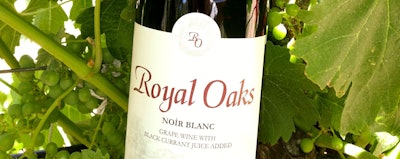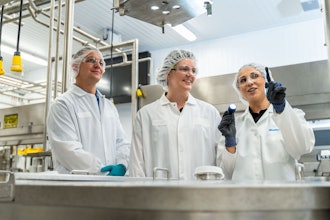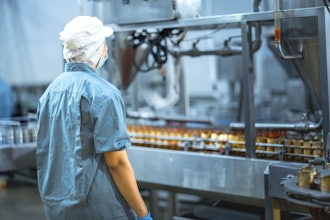
LEBANON, Pa. (AP) — When William Hartmann opened Royal Oaks Vineyard & Winery in North Cornwall Township, Lebanon County, it was like a dream come true.
Growing cannabis plants? That was never part of the dream.
"People who I know that dabbled in that stuff think it's a joke because I'm doing it," he said.
Desperate times, though, call for desperate measures. A dispute with the township forced Hartmann to shut down part of his business and put his entire vineyard in jeopardy.
By turning to the potentially lucrative but unstable world of recently legalized industrial hemp, Hartmann knows he's taking a risk -- one people close to him urged him not to take. But if it pays off, it might give him the money he needs to keep his winery.
While marijuana legalization gets most of the press, it's less psychoactive cousin, hemp, has quietly undergone its own revival.
Hemp can be grown for its fibrous stalks or its leaves. Compared to marijuana, its leaves contain a lower percentage of tetrahydrocannabinol (THC), the psychoactive ingredient, and a higher percentage of cannabidiol (CBD), the compound believed - with varying levels of scientific support - to help with seizures, pain relief, anxiety and even acne.
Hemp also has the potential to make a lot of money. In fact, CBD has become such a trendy ingredient in health foods and oils that there's a market for scam wellness products claiming untruthfully to contain it, according to Geoff Whaling, president of the Pennsylvania Hemp Industry Council. One study found that $534 million of CBD oil was sold in the United States last year.
The December 2018 federal farm bill lifted restrictions on growing hemp, which has Pennsylvania farmers seeing green. There were only 40 permits to grow hemp granted by the Pennsylvania Department of Agriculture in 2018, but this year there are 120 growers in various stages of the permitting process, according to department spokeswoman Shannon Powers.
"There is a money grab going on right now," Whaling said. "People see the opportunity to make a lot of money on CBD."
For Hartmann, it might be a last chance.
The dispute between Royal Oaks and N. Cornwall Twp.
Hartmann's winding journey to cannabis crops began with wine when he visited a vineyard and winery in Harrisburg where a friend's band was playing.
"I thought, 'this is really neat.' And so that sort of started churning in my mind, and then I thought, you know, I could do this," he said.
He began growing grapes in 2009, and now has about 700 vines on his property off Royal Road in North Cornwall Township.
As the business grew, he took out a loan to purchase a neighboring 5-acre lot, planning to expand the vineyard and create a tasting room. He used his already-existing vineyard as collateral. He was originally going to build a roadside stand to sell his wine but was encouraged in 2013 by people in North Cornwall Township leadership at the time to extend it into a full-blown tasting room with expanded parking and a stage for music, he said.
The tasting room opened in 2017, featuring acoustic music nights, open mic nights, and events such as a lobster fest.
"This was a dream for a long time, and I've poured absolutely everything and then some into it," he said.
His bubble burst in August 2017 when the township issued a cease and desist order forbidding music and events at the tasting room and the sale of wine from off the premises. The order happened amid neighborhood complaints about noise and parking, although Hartmann says those concerns have been exaggerated.
Hartmann was able to keep his tasting room open - although without music - while he unsuccessfully contested the order. (Lebanon County Court of Common Pleas Judge John Tylwalk agreed with the township in a Jan. 22 opinion that his tasting room is not an accessory to an agricultural operation but a commercial business not permitted in an agricultural zone. Hartmann said he plans to appeal.)
In November 2018, the township issued an order to vacate his tasting room building, saying it was unsafe and the original occupancy permit had been issued in error. He's planning to fight that as well but knows it will be a long and arduous task even if successful.
That means he has nowhere to sell wine, and can't make enough money to pay off his loan for the extra five acres. He now faces foreclosure proceedings, and his collateral - including the vineyard itself - could be in jeopardy, he said.
Not Easy to Grow Hemp in Pennsylvania
Hartmann said he was attracted to hemp for one reason: money. If things go well, he'll take his plants in the fall to a processor that will extract the CBD oil.
He hopes to make enough profit to pay his debt and save his vineyard - but he knows he's taking on a lot of risk. He doesn't have any experience with hemp, and it's tough to even find reliable information since Pennsylvania is just starting to grow hemp again.
"They don't know the growing conditions here," he said.
Even scarier, if his crop exceeds 0.3 percent THC, he would be legally required to destroy it. He's still figuring out the best way to monitor THC levels in his crop so that doesn't happen, he said.
Another risk comes on the purchasing side, experts said.
The market is not established to the extent that purchasers will guarantee payment up front, so a producer whose crop doesn't work out could be left without a revenue source, said Jeffrey Graybill, an extension educator at the Penn State Extension in Lancaster County who has been involved in hemp growth for research purposes. Both Graybill and Whaling cautioned that the rush to get in on the hemp market could quickly create an overabundance of CBD, causing prices to drop.
"Farmers should be very careful," Whaling said.
Still, there is potential to make money and the crop can grow well in Pennsylvania, Graybill said.
"The plant itself should be well-adjusted to this climate," he said.
Using Hemp to Pay the Bills
While Hartmann will be using some of his ground to plant hemp, he will still be maintaining his vines - and he isn't planning to abandon his original passion project.
"My goal is to get the winery back up and running. This is just a means of trying to pay for it, actually," he said. "This is my last effort."
In the meantime, he'll be happy if the plants he grows can help other Pennsylvanians.
"Everything I've learned about it, it's a harmless plant. I've never been into pot, but I've never been against it," he said.
And maybe, like a fine wine, he'll like hemp more and more as time goes by.



















